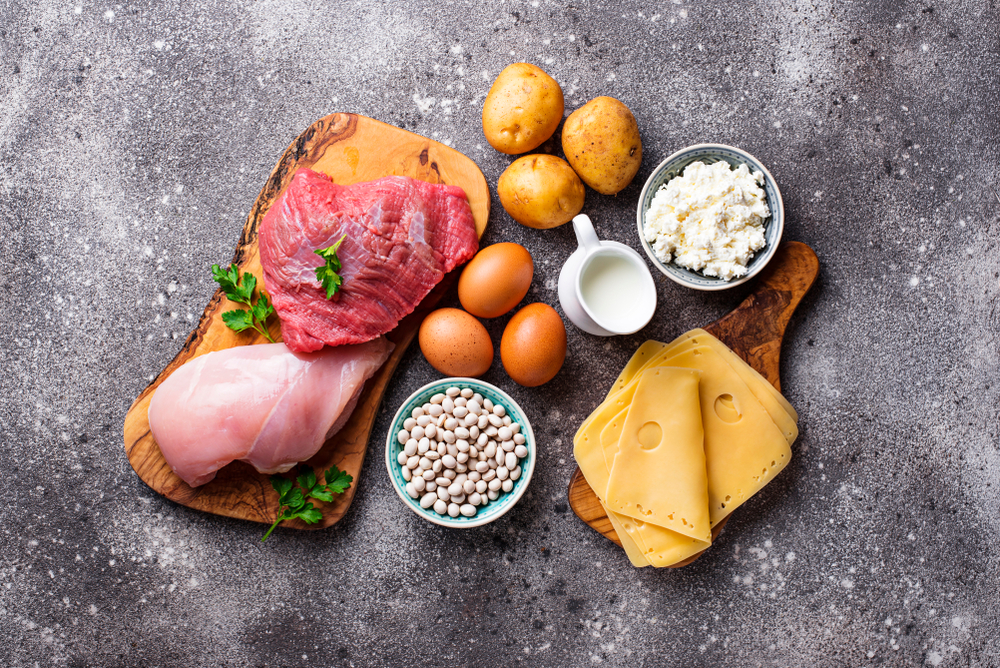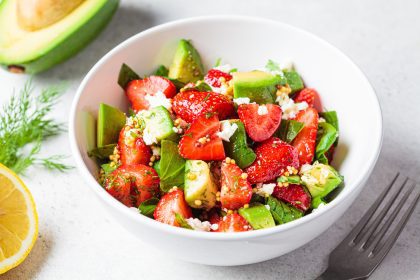Scientists have discovered that what we eat directly affects our brain chemistry and mood. While no food is a magic cure for anxiety certain nutrients can help create a foundation for better mental health.
Here are 15 foods that science says can help reduce anxiety
- Avocados deliver a powerful combination of B vitamins that support the nervous system and help combat stress naturally.
- Blueberries contain antioxidants that protect brain cells from stress related damage while supporting overall mental health.
- Dark leafy greens like spinach and kale provide calcium and magnesium essential minerals for mood regulation.
- Eggs particularly the yolks offer vitamin D which research links to lower anxiety levels.
- Cashews provide zinc a mineral crucial for brain health and emotional stability.
- Pumpkin seeds deliver a concentrated dose of magnesium nature’s relaxation mineral.
- Chia seeds offer omega 3 fatty acids that support brain function and mood regulation.
- Oranges and citrus fruits provide vitamin C which helps reduce stress hormones in the body.
- Oysters contain the highest natural concentration of zinc supporting emotional balance.
- Chamomile tea contains compounds that bind to the same brain receptors as anti anxiety medications.
- Green tea provides L theanine an amino acid that promotes relaxation without drowsiness.
- Pure fruit juices without added sugar can help stabilize mood through natural compounds.
- Greek yogurt combines protein and calcium for sustained emotional balance.
- Sweet potatoes offer complex carbohydrates that help produce serotonin the feel good brain chemical.
- Dark chocolate contains compounds that reduce stress hormones in the body.
The science behind food and mood
Research shows that certain nutrients directly influence neurotransmitter production and function. These brain chemicals play crucial roles in regulating mood anxiety and stress responses.
Understanding the gut brain connection
Scientists now recognize that our digestive system acts as a second brain producing many of the same neurotransmitters that regulate our emotions. This explains why diet can significantly impact mental health.
Creating an anxiety reducing meal plan
Incorporating these foods into your daily diet requires planning but doesn’t need to be complicated. Simple swaps and additions can make a significant difference in your mental wellbeing.
The importance of timing your meals
When you eat can be just as important as what you eat. Regular meal times help stabilize blood sugar which directly affects mood and anxiety levels.
Drinks that calm the mind
Beyond food choices certain beverages can help reduce anxiety naturally. Understanding which drinks help and which might hurt makes a difference in managing stress levels.
Foods and drinks to avoid
Some common items can worsen anxiety symptoms. Identifying and eliminating these triggers while replacing them with beneficial alternatives supports better mental health.
Building better eating habits
Creating sustainable dietary changes takes time and patience. Small consistent steps lead to lasting improvements in both diet and anxiety management.
The role of hydration in anxiety management
Proper hydration directly affects brain function and mood regulation. Understanding how much and what to drink supports overall mental wellness.
Combining diet with other anxiety management techniques
While food plays an important role it works best as part of a comprehensive approach to anxiety management. Combining dietary changes with other strategies maximizes their effectiveness.
Creating a supportive eating environment
The way we eat affects how our bodies process nutrients. Creating calm peaceful eating environments enhances the benefits of anxiety reducing foods.
Planning for challenging times
Having strategies and go to foods ready for high stress periods helps maintain emotional balance when anxiety threatens to spike.
The long term benefits of anxiety conscious eating
Consistent attention to diet can lead to lasting improvements in anxiety management and overall mental health. Understanding these benefits motivates maintaining healthy eating habits.
Working with healthcare providers
While dietary changes can significantly impact anxiety they work best when coordinated with healthcare providers especially for those taking medications or dealing with severe anxiety.
Moving forward with confidence
Armed with knowledge about anxiety reducing foods you can make informed choices that support better mental health. Remember that small changes add up to significant improvements over time.















